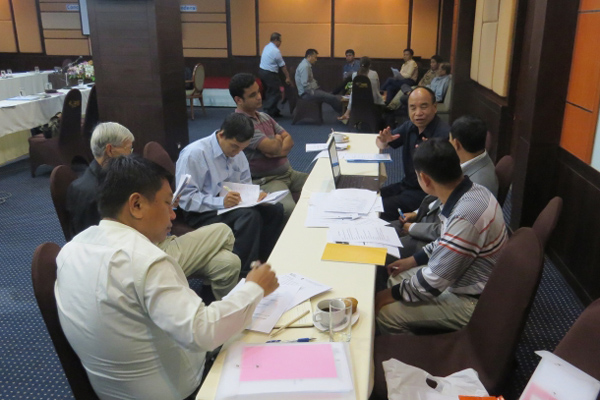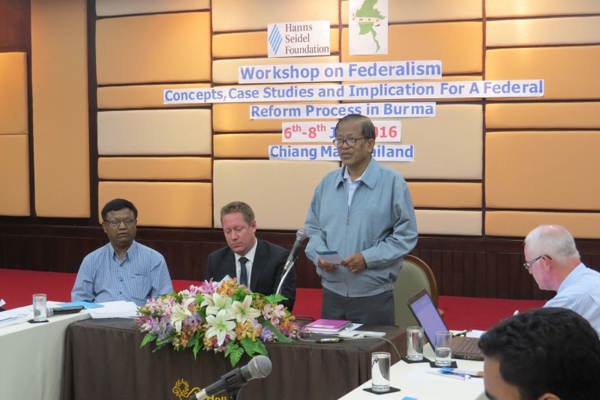Workshop on Federalism for Non-Signatories of the Nationwide Ceasefire Agreement (NCA) organised in Chiang Mai, Thailand

Mr. Zoramthanga, President of the Mizo National Front and Former Chief Minister of Mizoram State in India, shares his experience with ethnic leaders during group discussions.
HSF
Federalism in Myanmar is viewed increasingly as a cornerstone to sustainable peace, political stability and inclusive economic growth. In this context, a solid and profound understanding of democratic and federal concepts by all stakeholders involved is very important.
The numerous EAOs in Myanmar will play a crucial role in the peace process and the political dialogue as they will be the ones negotiating a sustainable peace deal with the government and the Myanmar military – the Tatmadaw. In October 2015 a so called Nationwide Ceasefire Agreement (NCA) was signed between the government, the Tatmadaw and some EAOs. However, 8 of the 16 recognised EAOs refused to sign the NCA. In order to give the non-signatories of the NCA the opportunity to discuss their demands for more autonomy and significant federal reforms, the Hanns Seidel Foundation, in cooperation with the Ethnic Nationalities Affairs Center (ENAC), organized this workshop.

Nai Hanthar, Vice Chairman of the United Nationalities Federal Council (UNFC), opens the workshop.
HSF
The workshop aimed at the following:
- Increase the level of understanding of different models and concepts of federalism among non-signatories EAO leaders
- Present case studies of other federal reform processes and discuss their relevance for the Myanmar context
- Prepare ethnic leaders for a technical discussion on federal reforms
Therefore the workshop had several lecturing as well as group work sessions around thematic blocs focusing on federalism as a tool for conflict resolution, institutions in federal systems and resource sharing arrangements in federal countries. It also included a panel discussion on the advantages and disadvantages of ethnic-based states as well as geographical-based states in a potential federal system in Myanmar.
